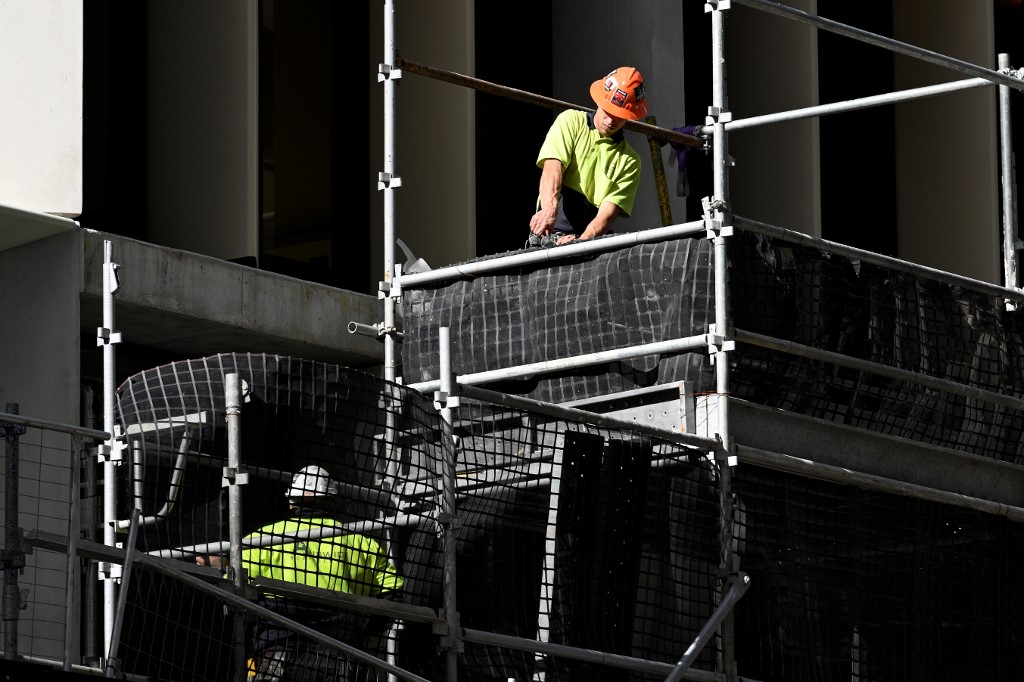Australia’s unemployment rate hit its highest level in two decades last month, official data showed on Thursday, as hundreds-of-thousands more people lost their jobs because of pandemic-induced shutdowns.
The jobless rate jumped to 7.1% in May following the loss of 227,700 posts, which was almost three times more than forecast and followed a more than 600,000 fall the month before, according to the Australian Bureau of Statistics.
The figures come with the country on course for its first recession in nearly three decades after the economy shrunk 0.3% in January-March, with a “far more severe” reading expected in the next three months.
The conservative government described the data as “devastating”, with Prime Minister Scott Morrison warning “we are working with some of the biggest economic challenges this country has ever faced”.
The Australian dollar weakened against major currencies, and Sydney’s ASX 200 stock market fell 1.6% following the news.
Unemployment had been hovering around 5% before February, when coronavirus travel bans were introduced and businesses forced to introduce social distancing measures. It was sitting at a revised 6.4% in April.
The last time it broke 7% was in October 2001.
Market analysts at NAB bank expressed shock at the number of people who left their jobs or stopped looking.
“Over the past two months, a massive 835,000 people have lost their job,” they told clients. That figure is roughly double the population of Canberra.
“Many of those who lost work also left the labour force”, NAB added, noting the labour force participation rate fell to the lowest level since 2001.
Morrison warned it would take at least two years for the economy to return to normal and could be set back by a second wave of infections.
The former treasurer won election last year on a platform of sound economic management and fiscal responsibility.
He is due to face re-election by 2022 and now faces a difficult decision about whether to end massive crisis spending programmes that provide income support to three million people and propping up the broader economy.
Australia’s central bank has warned against withdrawing stimulus spending too quickly, but Morrison risks upsetting the right wing of his party – which opposes many of the country’s social safety nets – if he continues the programme.
Free-trade talks with Britain
Meanwhile, Britain formally launched talks with Australia and New Zealand on post-Brexit free-trade agreements on Wednesday, with Canberra’s top trade official voicing hopes a deal could be reached this year.
“Later today, Australia and the United Kingdom will formally commence free-trade negotiations,” Trade Minister Simon Birmingham said, in a speech highlighting Australia’s drive to diversify trade as it is locked in disputes with China.
Britain’s conservative government has heralded its departure from the European Union as an opportunity to deepen trade relations with global partners.
While talks have already taken place, formal negotiations had been delayed until Britain left the bloc in January.
Birmingham warned that even with an Australia-Britain deal, volumes were unlikely to return to those seen in the 1970s – before Britain joined the European Economic Community and when its trade was last focused on its former colonies.
“Australia will be looking to secure better market access for goods exports, especially in agriculture, and high-standard rules on digital trade and investment,” he said.
Talks on an Australia-EU trade deal are already under way, and Birmingham said Canberra would also like to conclude them this year. But he admitted that would be a tough task with negotiations on several trade agreements taking place simultaneously.
Separate negotiations commenced in Wellington, where British High Commissioner Laura Clarke said it made sense to deal with Australia and New Zealand at the same time, given their close economic ties.
While not mentioning China by name, Prime Minister Jacinda Ardern said New Zealand was also aiming to broaden its range of trading partners.
“Our policy in the here and now is to strengthen New Zealand’s economy and resilience through diversification,” she said.
Birmingham refused to say whether Australia would prioritise a deal with the European Union or Britain.
“The EU is a much bigger market, and notwithstanding Brexit it remains a much bigger market. But that does not mean the UK is not a significant market,” he said.
“I don’t have favoured children in that regard, and I want to love them both equally.”
AFP
























